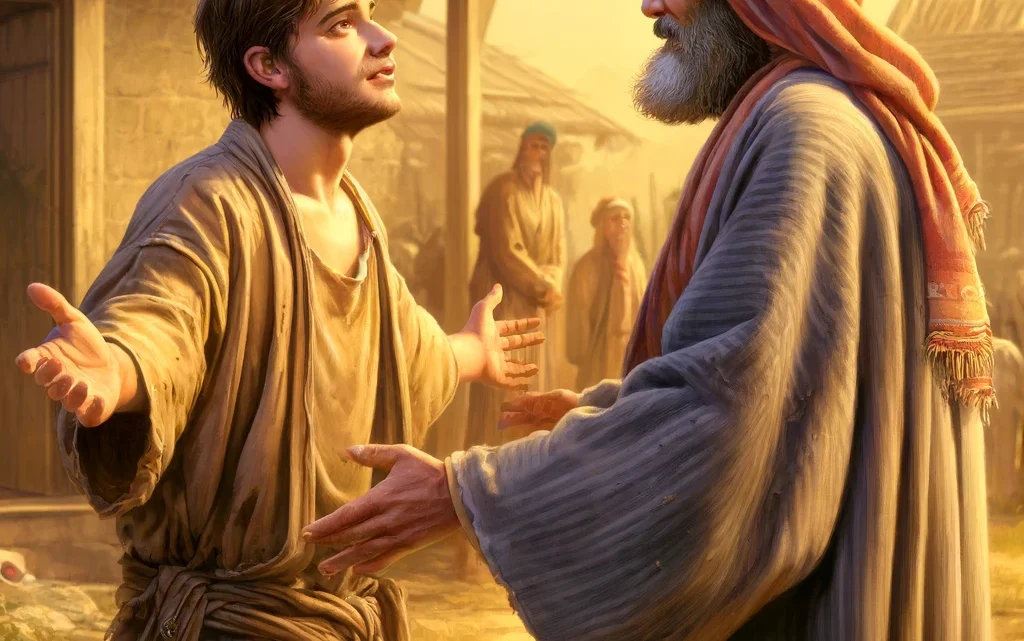“From Exile to Embrace: The Journey of the Lost Tribes and the Prodigal Son”


Introduction:
The mystery of the Lost Ten Tribes of Israel and the poignant story of the Prodigal Son share a deep, underlying narrative of separation, redemption, and the enduring hope of return. Both stories, rooted in scripture, explore themes of departure from one’s origins and the journey back to reconciliation.
Historical Background:
The story of the Lost Ten Tribes begins with the division of the ancient Kingdom of Israel after the reign of Solomon, resulting in two kingdoms: Israel in the north and Judah in the south. The tribes of the northern kingdom were taken into captivity by Assyria around 722 BCE, as chronicled in 2 Kings 17:6: “In the ninth year of Hoshea, the king of Assyria captured Samaria and deported the Israelites to Assyria.” This marked their scattering and what many believe to be their loss from history.
Story of the Prodigal Son:
In the New Testament, Luke 15:11-32 recounts the tale of a young man who leaves his family to explore the world, squandering his fortune and eventually returning home in desperation. The key verses capture his moment of realization in Luke 15:17-18: “When he came to his senses, he said, ‘How many of my father’s hired servants have food to spare, and here I am starving to death! I will set out and go back to my father.”
Connecting the Themes:
The departure of the Lost Tribes and the journey of the Prodigal Son both reflect a spiritual and physical estrangement. Just as the prodigal son left his home, the Lost Tribes were removed from their homeland. Their stories are emblematic of the journey away from the divine presence and the hope of restoration, as echoed in Jeremiah 31:17: “There is hope for your future, declares the Lord, and your children shall come back to their own country.”
Theological Implications:
These narratives are rich with theological symbolism, especially in terms of divine forgiveness and redemption. The return of the Prodigal Son illustrates the boundless mercy of God, akin to the prophetic promises to the Lost Tribes that they, too, might be restored to their land and heritage. Ezekiel 37:21-22 promises this reunification: “I will take the Israelites out of the nations where they have gone. I will gather them from all around and bring them back into their own land.”
Contemporary Relevance:
Today, these stories resonate as powerful metaphors for personal and communal restoration. They encourage contemporary believers to reflect on their own spiritual journeys and consider the broader human experience of alienation and the universal desire for reconciliation.
Conclusion:
The enduring narratives of the Lost Ten Tribes and the Prodigal Son challenge and comfort us, offering profound insights into the nature of redemption and the limitless compassion of the Divine. As we reflect on these stories, we find a mirror for our own return journeys—to our roots, our homes, and our divine heritage.

